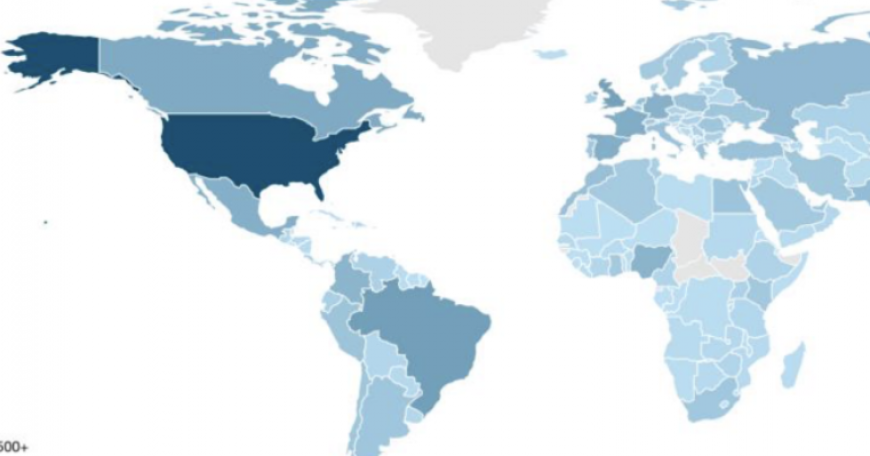Digital Innovations in the DMSE Curriculum

Department of Materials Science and Engineering faculty have produced significant learning gains, accelerated students learning, and enhanced student satisfaction by leveraging digital innovations in their teaching. Using MITx for rapid homework feedback, ‘flipping’ the classroom to promote face-to-face student/professor interaction, and making content and resources more consistently available have transformed faculty teaching practices in the department.
DMSE Digital Learning Scientist Jessica Sandland has been key to fostering these innovations, supplying a critical combination of discipline-specific knowledge and expert technical skill. ODL Educational Technologists provide frontline support for a quick orientation to the MITx platform. ODL Residential Learning Engineers are available to advise on pedagogical approaches and strategies.
Faculty
DMSE faculty are using online materials in the following ways:
Prof Gibson has transformed 3.032 into a fully ‘flipped’ classroom. Students view lecture videos prior to class and spend face-to-face class time in Q&A and active learning. Prof. Gibson uses MITx’s immediate feedback capability for p-sets.
In 3.024, Prof. Anikeeva provides complicated derivations on video so that students can review and go more slowly. Prof. Anikeeva also uses MITx for p-sets.
Prof Fitzgerald’s project-based class, 3.086, uses MITx for online exercises. Students also view online lecture videos. In addition, Fitzgerald uses project development software created outside of MITx.
Other DMSE faculty using MITx are Dr. Taylor, Prof. Ross, Prof. Gradečak, Prof. Hu, Dr. Wankerl, Dr. Hessenbruch, and Dr. Frankel. 1.
Departmental Strategy
DMSE has embraced digital innovations in tandem with an underlying goal of commitment to student-centered education. This objective guided DSME’s involvement with OCW, has continued with MITx and edX and extends to additional resources and tools.
DMSE’s departmental strategy for digital innovation is a 3-pronged approach:
- Make digital resources available for all undergraduate core subjects that are required for DMSE majors as well as popular upper-level electives. 2.
- Record and archive specialized knowledge of professors as many DMSE faculty are world experts, some soon to retire. In addition, digitize and make freely available online advanced subjects that can’t be found elsewhere.
- Look for opportunities to offer fee-based courses by identifying areas where professional development is needed.
The Department of Materials Science and Engineering is currently experimenting with further evolution and growth in three ways:
- Exploring additional possible uses of MITx
- Exploring educational innovations independent of digital technology
- Exploring digital innovations with tools beyond MITx
Department head Chris Schuh is excited about the potential benefits that digital learning offers and Schuh is supportive of DSME faculty who are interested in developing digital resources and tools. Consideration is also given to allow faculty to fulfill their teaching obligations through digital initiatives.
History/Background
Having laid a foundation of early participation in OCW with over 60 courses, beginning in 1999 and including one full course on OCW scholar, DMSE has embraced and leveraged what MITx/edX has to offer, both for enhancing residential subjects as well as enabling the free sharing of resources and content globally.
Michael Cima was the first DMSE professor to use MITx. His MOOC 3.091x has undergone eight iterations and reached thousands of students across the globe. Professors Lorna Gibson and Gene Fitzgerald have led the process as early adopters of MITx in their residential subjects and their success in using MITx have been largely due to how they’ve approached the process of transforming their courses.
Lessons Learned
Balance. Innovation is best when balanced with caution: making sure professor-student time is not replaced by videos and innovations serve to augment the student experience.
Individualized. What works for one professor or subject doesn’t work for another. There isn’t one best way.
Research. There isn’t one best practice that works for all situations, but research-based recommendations are useful guides and resources.
Iterative progress. Ambitious projects need time to develop to allow for adjustments and changes. Time is needed to experiment with what works and what doesn’t, both for students and instructors.3.
Impact
Students have come to rely on the flexibility that digital resources offer and to expect more online tools. Surveys indicate student satisfaction with digital innovations and assessments show elevated student performance.
After implementation of online lecture videos, online exercises, and project software in Prof. Fitzgerald’s 3.086 class, student achievement rose across virtually all metrics that were studied and quantified. In 3.032, students were strongly satisfied with the flipped class format (5.8 score out of highest possible of 7), and overwhelmingly satisfied with rapid homework feedback (6.9 out of 7).
Into Action
- Request a pedagogical consultation on leveraging technology to improve teaching & learning for MIT students. (odl-residential@mit.edu)
- Request a course site on Residential MITx. (odl.mit.edu/mit-faculty/use-digital-learning/self-author-residential-mitx).
- Schedule an orientation session with MITx Educational Technologists. (MITx-support@mit.edu)
[1] DMSE Newsletter (https://issuu.com/mit-dmse/docs/mit_dmse_structurespring2017
[2] DMSE Newsletter (https://issuu.com/mit-dmse/docs/mit_dmse_structurespring2017
[3] Interview with Digital Learning Scientist Dr. Jessica Sandland, June 27, 2017

